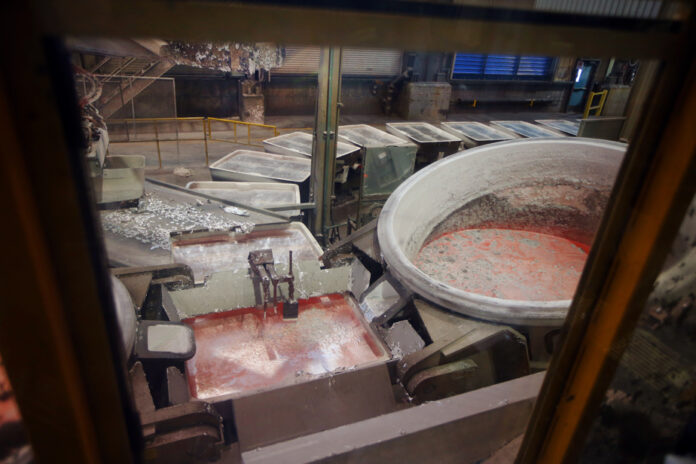(Montreal) The Minister of Finance, Eric Girard, denies abandoning the aluminum sector, which does not have access to the new tax credit for large investment projects.
The Minister says that it would have been too complex to estimate the tax cost of the tax credit, if it had been offered to aluminum smelters. “It was impossible for the Department of Finance to properly quantify the cost of the tax holiday for major investment projects in the aluminum sector,” he explained during a presentation before the Board of Trade of Metropolitan Montreal. . So, if we are not able to calculate it, we exclude it. »
The fact that electricity rates for aluminum smelters vary according to the price of aluminum would have complicated this estimate, according to him.
The ministry would not have had time to find an alternative solution to include the aluminum industry, said the minister during a press scrum on the sidelines of the conference. “A budget has a deadline. There are times when economic forecasts are closed. Then, we close the financial framework. Then we make the decisions. When we had to make this decision for the tax holiday for large investment projects, we could not properly quantify the number of projects that would be involved, their cost. »
The Legault government’s decision “disappointed” players in the aluminum industry. “Quebec is no longer alone in the forefront with its low-carbon aluminum, and we must ensure our future by remaining competitive,” reacted the President and CEO of the Aluminum Association of Canada. (AAFC), Jean Simard, earlier this week following the unveiling of the budget.
Mr. Girard denies abandoning this industry, a major employer in the Saguenay-Lac-Saint Jean region. “As we love the aluminum sector and it’s strategic, we put a footnote that says: ‘when we are better able to calculate it, most likely they will be eligible.’ »
The minister acknowledged that the state has a role to play in supporting “strategic” sectors, such as aluminum, which are “capital intensive” but have long-term payoffs. In a scrum, he replies that he would “not judge” on the most appropriate intervention. “Each project is analyzed on a case-by-case basis. »
The tax credit for large investment projects is one of the flagship economic measures of the provincial budget, unveiled on Tuesday. The credit of 15% to 25%, depending on the region, is intended for investment projects of at least 100 million.















